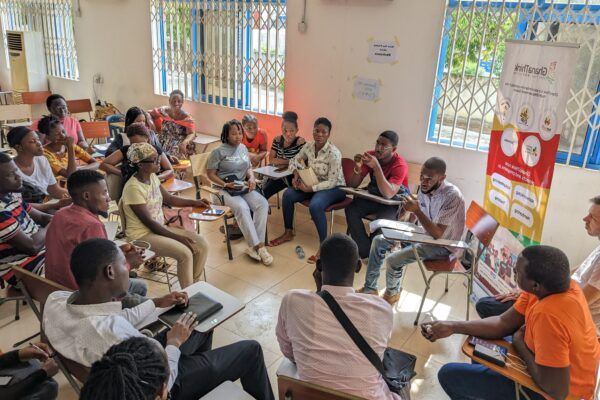Accra has joined Breathe Cities, a global initiative that aims to reduce air pollution and carbon emissions by 30% by 2030 to enhance public health. This will see the city gain support in gathering air quality data, capacity building and community engagement, and international knowledge sharing to help clean its air.
Delivered by Bloomberg Philanthropies, the Clean Air Fund and C40 Cities, Breathe Cities brings together air quality data, communities and local government to equip cities to develop tailored policies and initiatives at the local level, and to collaborate globally with an initial cohort of 11 cities.
The Breathe Cities initiative will provide Accra with crucial support to strengthen its air quality data collection efforts. This enhanced data will offer a more comprehensive understanding of the city’s air pollution levels, enabling the development of targeted solutions. Furthermore, the project prioritizes community engagement through various initiatives, empowering residents to play a vital role in improving air quality.
Desmond Appiah, Country Lead for Clean Air Fund
A lack of robust data and public awareness often hinders the ability to carry out the bold policy action needed to address the rising global challenge of air pollution. By fostering collaboration for clean air, Breathe Cities aims to reduce air pollution, slash carbon emissions, and enhance public health. Accra joins global cities including Brussels, Jakarta, Johannesburg, Milan, Nairobi, Paris, Rio de Janeiro, Sofia, Warsaw, and London.
The Dean of Metropolitan/Municipal Chief Executives of Greater Accra Region, Hon. George Cyril Bray, highlighted the importance of such a partnership saying “this partnership is a key part of our efforts to tackle air pollution in Accra. The technical support, capacity building, community engagement and data provided by the sensors allow us to ensure all our residents breathe cleaner air”.
In 2019, approximately 3,000 premature deaths were attributed to air pollution in Accra. At the country level, air pollution related deaths (23,792) exceeded those from malaria (21,597), tuberculosis (10,222), and HIV/AIDS (14,620) according to WHO’s report on air pollution in Ghana.
Research shows that people are increasingly more likely to die from breathing toxic air than from smoking. But by working together to tackle air pollution, we can save lives and address the climate emergency. We’re excited to see the Breathe Cities initiative in Accra taking off and to work closely with the city and local communities to ensure cleaner, healthier air for all.
Jaime Pumarejo, Executive Director of Breathe Cities
“Cleaner air means better, longer lives for people everywhere,” said Antha Williams, who leads the environment programme at Bloomberg Philanthropies. “Accra is a regional and global leader taking action to reduce air pollution, slash carbon emissions, and enhance public health while also exchanging insights for other cities in Africa and around the world to learn from. Bloomberg Philanthropies is glad to welcome Accra to Breathe Cities to help further their work creating a safer and healthier future for all.”
As a member of the first cohort of Breathe Cities, Accra was carefully selected for their commitment to advancing ambitious policies addressing the dual challenges of air pollution and climate emissions, engaged civil society, strong political interest and leadership, scalability potential, and capacity to implement action plans, among other metrics.
Breathe Accra’s data project led Prof Kofi Amegah has established a network with 60 low-cost sensors and three TEOM reference monitors to provide real-time air pollution levels to the public for the first time. Breathe Accra is funding the development of district level air quality action plans to enable effective implementation of the Ghana Environmental Protection Agency Greater Accra Air Quality Management Plan. Breathe Accra is part of the Zero Waste project which is aimed at reducing waste burning, recycling plastics, metals and promoting community urban garden projects from organic waste composting. An air pollution awareness and waste burning prevention campaign will be rolled out shortly and a study on the impact of air pollution on health in the city will be developed as part of Breathe Cities to help the city and its citizens take action.

